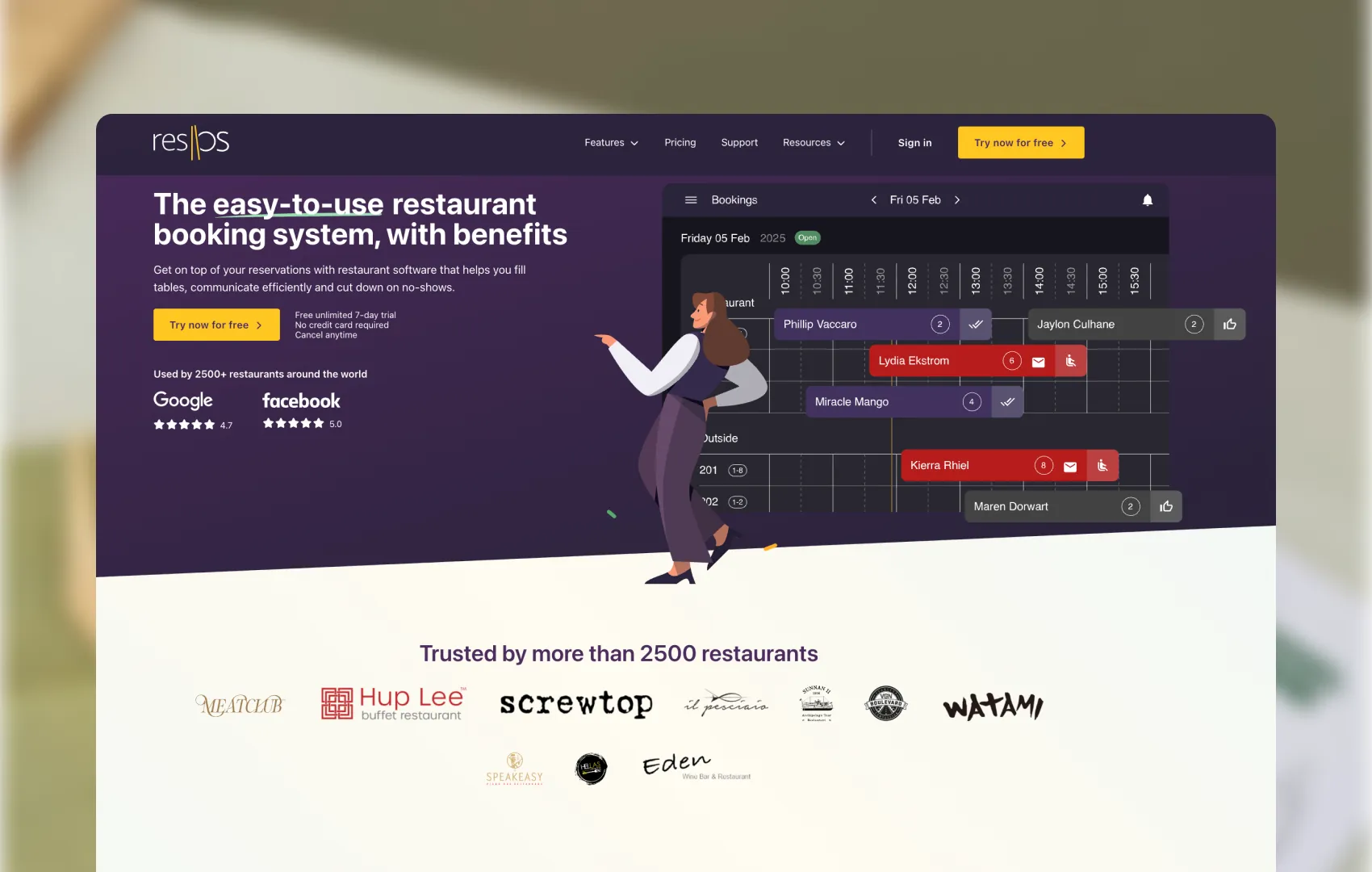

Announcing Apple Business Connect Integration
Learn more →

Knudsen sees the biggest opportunity for Nordic restaurants in using technology to streamline operations and reduce admin. “Nordic restaurants are often busy, independent, and run by tight teams where every minute matters. Tools and automations that reduce repetitive tasks—like handling reservations, no-shows, or payments—allow owners and staff to spend more time on what truly creates value: the guest experience.”
He notes that the shift is already underway. Digital tools are no longer an “add-on”—they’re now part of the daily rhythm of running a restaurant. “Instead of calling to book a table, guests expect to book online. Instead of handwritten notes, orders flow directly from the floor to the kitchen. Staff schedules are now digital rather than drawn up on paper. What we’re seeing is that digital tools are no longer just nice to have—they are shaping the way restaurants optimize their operations every single day.”
“Nordic restaurants are often busy, independent, and run by tight teams where every minute matters. Tools and automations that reduce repetitive tasks — like handling reservations, no-shows, or payments — allow owners and staff to spend more time on what truly creates value: the guest experience.”
As guest expectations evolve, Knudsen emphasizes that technology should never strip away the warmth of hospitality. “Booking a table should be as easy as booking a taxi, but guests still want to be greeted by a host. Payments should be smooth and cashless, but never impersonal. Loyalty should be earned through genuine hospitality, not just points. The role of technology is to be seamless and invisible—enhancing the experience without ever replacing the human connection.”
When it comes to adopting new technology, Knudsen warns that fit matters more than flash. “A common mistake is adopting technology that looks impressive but doesn’t solve the restaurant’s actual pain points. Sometimes owners choose a system because it’s popular, not because it fits their workflow. This often leads to frustration, unused features, and wasted money. The best way to avoid this is to start with the problem, not the solution: identify what tasks drain the most time or cause the most errors, and then find a tool that specifically addresses that.”
For growth in 2026, Knudsen stresses that integration is more important than simply adding more apps. “Most restaurants already use several tools—POS, booking, staff management, delivery platforms. The real growth opportunity lies in making sure these systems work together. Owners shouldn’t spend hours reconciling numbers across platforms. A practical tip is to invest in a setup that talks to each other, so you have one clear overview of your business without extra admin.”
“Most restaurants already use several tools — POS, booking, staff management, delivery platforms. The real growth opportunity lies in making sure these systems work together. Owners shouldn’t spend hours reconciling numbers across platforms. A practical tip is to invest in a setup that talks to each other, so you have one clear overview of your business without extra admin.”
Looking ahead, Knudsen sees the next frontier in reservations and guest management as independence and direct communication. “Restaurants should prepare for a world where guests book across multiple channels—social media, search engines, restaurant websites, phone bookings—and still expect instant confirmation. The winners will be those who maintain direct contact with their guests while being present everywhere their guests are. Preparing for this means focusing on independence: owning your data, your guest list, and your communication, so you’re not overly reliant on middlemen.”
For Emil Knudsen, the message is clear: technology should free up time for hospitality. By focusing on integration, independence, and tools that remove friction, restaurants can ensure their people spend less time on admin—and more time creating the guest experiences that truly matter.

resOS is a restaurant management platform designed to streamline reservations, operations, and guest communications. Trusted by restaurants across the Nordics, resOS helps teams automate admin tasks, improve efficiency, and focus on delivering exceptional guest experiences.